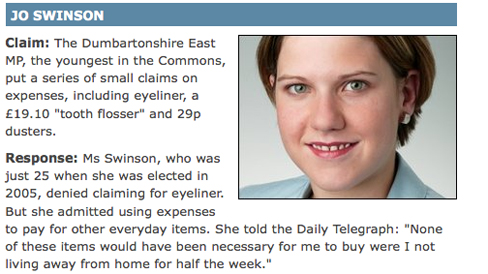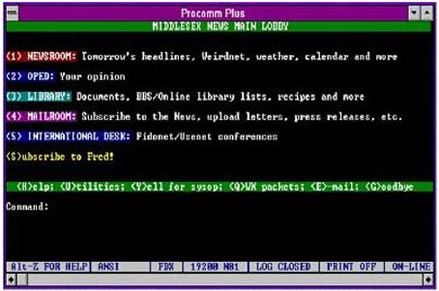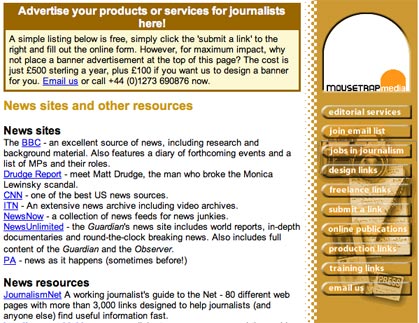As reported on the main site [“Telegraph ‘didn’t tell any lies but was selective in its facts’ – says Lib Dem Voice site editor“] several MPs, or others on their behalf, have voiced various concerns in regards to claims about their expenses in the Daily Telegraph, and subsequently reproduced in other stories by other media organisations.
Here are the screen grabs of the Telegraph and other news organisations’ headlines, in the order featured in the article, with links to the complaints. If you wish to add any examples, your own thoughts or information about the questions raised, please leave them in the comments below, or email Judith at journalism.co.uk. As stated in the original article, a spokesman from the Telegraph said: “The Daily Telegraph does not discuss individual cases.”
Update: the Press Complaints Commission (PCC) has confirmed that it has not received any complaints from MPs over stories about expenses to date. Generally, third parties cannot complain on the first party’s behalf.
1. Jo Swinson, Liberal Democrat MP for East Dunbartonshire
Issues raised on Quaequam blog by James Graham [he discloses that he is a friend of Swinson’s] and other Liberal Democrat blogs, e.g. Mark Reckons.
Swinson denies claiming for eyeliner or other cosmetics and dusters but said they were included on the same receipt as items she did claim for.
- Telegraph.co.uk May 21, 2009. The online version reproduced below; the print version of the headline read: ‘Tooth flosser, eyeliner and 29p dusters for the makeover queen’



2. Andrew George, Liberal Democrat MP for St Ives and the Isles of Scilly
Issues raised on the Liberal Democrat Voice website in a piece by Alix Mortimer and also by George in media interviews: the MP claims that he owns a third of the flat in question, it is for his use, and is only used by his daughter occasionally.

3. Alan Reid, Liberal Democrat MP for Argyll & Bute
In the same piece (see above) on the Liberal Democrat Voice website, Mortimer claims that unfair criticisms were made of Reid’s B&B expenses: she argues that the size of his Scottish constituency, and the number of islands within it, more than justifies the money spent. Other pro-Lib Dem bloggers, Andrew Reeves and Stephen Glenn make similar points.

4. Andrew Turner, Conservative MP for the Isle of Wight
The VentnorBlog reproduces Turner’s response to the Telegraph the day before publication. It shows that Turner denied claiming for life coaching for his girlfriend, stating that it was for another member of staff in his office. Turner also responds to the allegations on his site. Issues raised on OUuseful.info.

5. Martin Horwood, Liberal Democrat MP for Cheltenham
Gloucestershiretoday.co.uk has published an article reporting that the Telegraph apologised to Horwood for stating that he had claimed mortgage interest in parliamentary expenses.
- Telegraph.co.uk, May 19, 2009: the online version currently states that Horwood claimed for ‘rent;’ it is not clear if that is a later amendment after the claim made in the print version; the Telegraph did not provide further information in regards to whether, of if any correction had been made, when requested.

Related Links:
- “Telegraph ‘didn’t tell any lies but was selective in its facts’ – says Lib Dem Voice site editor” (Journalism.co.uk)
- “It’s old-fashioned journalism from the ‘bunker’ and there’s more to come, says Telegraph” (Journalism.co.uk Editors’ Blog)



